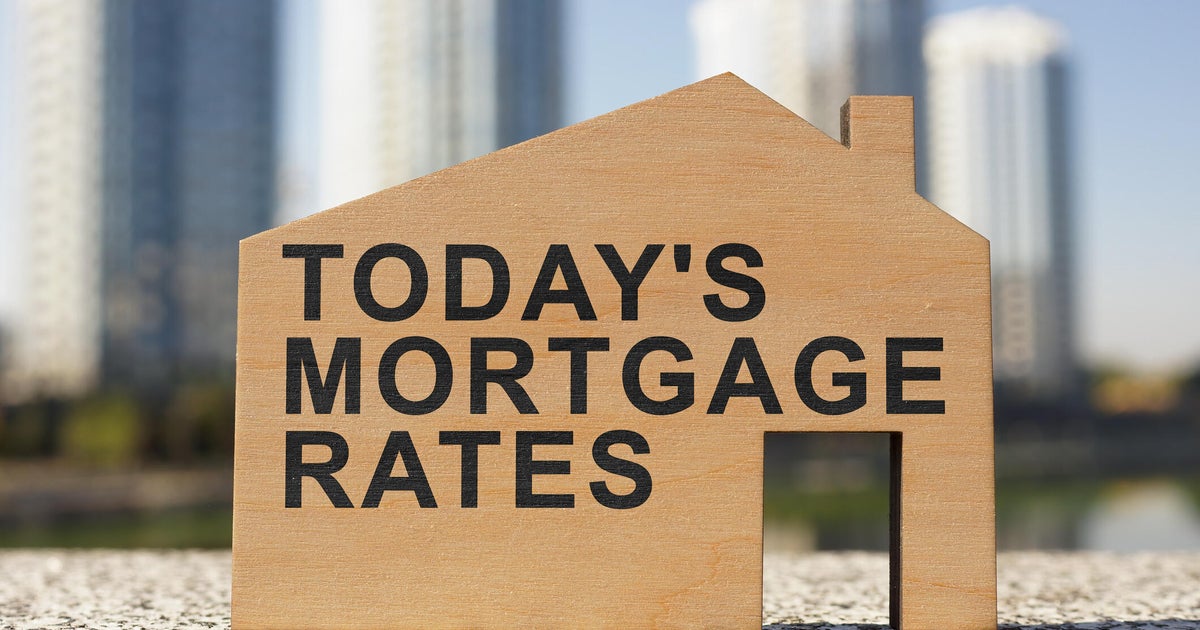What prospective homebuyers should do until interest rates drop
In this high-interest-rate environment, many prospective homebuyers are put off by high mortgage costs. Homes that might have been in your budget in the past might no longer be affordable when accounting for monthly interest payments.
But that doesn't mean the situation is totally out of your control. While mortgage timing can be tricky, you might decide to wait to see if interest rates drop, as many experts predict will happen in the next year or so.
You can also take a number of steps to improve your financial situation and get a handle on the real estate market now as you're figuring out when to buy a home.
See where today's mortgage rates stand here.
What prospective homebuyers should do until interest rates drop
In particular, some action items to consider as you wait to see what happens with mortgage interest rates include the following expert-recommend tips:
Figure out what you want
If you're waiting to see what happens with interest rates, use this time to do more research. That includes narrowing down what you want in a home and what you can realistically afford.
"Use this time to refine exactly what you're looking for in your next home, including things like what your budget can buy you and what your 'needs' and 'wants' are," says Merav Bloch, VP and GM of Opendoor Exclusives. "If you're willing to trade a longer commute for your dream yard, but your partner wants to be within a 10-minute drive of their office, now is an opportune time to debate that trade-off."
Even if you're not necessarily ready to buy right away, you can still tour homes.
"I encourage buyers to see what's out there and tour as many homes as possible to get a sense of what your budget will get you, what your non-negotiables are and what neighborhoods you're open to," Bloch says. "People typically don't get married on the first date, and it's usually better not to purchase the first home you tour."
Start your mortgage search online now.
Talk to experts
As you figure out what you want in a home, it can help to talk to experts like mortgage consultants and real estate agents to narrow down what's realistic for you.
Tanya Ball, home loans regional director at BOK Financial, suggests asking experts about down payment assistance options as well as "specialized loan programs if you are a veteran, Native American, first-time buyer or buying in a rural area."
Plus, speaking with an expert like a mortgage professional "can let you know which items to focus on for better offers — for example, a higher down payment or paying off debt," says Michael Merritt, mortgage servicing operations manager at BOK Financial. "The biggest benefit will vary based on your circumstances, so it is important to focus on the things that will help you the most."
Improve your credit score
For some prospective homebuyers, improving your credit score can make a significant difference in the mortgage rate you qualify for.
"Lenders typically offer better interest rates and loan terms to borrowers with higher credit scores, so taking steps to improve your credit can help you get the best possible deal on your mortgage," says Adie Kriegstein, licensed real estate salesperson at Compass Real Estate. "This might include paying down existing debt, making all of your payments on time and avoiding new credit inquiries or applications."
Build up your down payment
Another way to take advantage of this time waiting for interest rates to stabilize or drop is to build up your down payment. The more you can put down, the less you have to borrow and therefore pay interest on. Plus, a higher down payment could potentially get you a lower interest rate.
"A strategy I recommend, especially for first-time home buyers, is to deposit the difference between your current housing payment and your projected payment into a high-yield account each month. This helps grow your down payment or the amount you can use to pay down debts and is a test for your expected budget to see if it is workable," says Merritt.
Check out today's mortgage offerings here.
Shop around
Don't assume that what one lender offers you is the same as what all other banks and mortgage providers offer. Your borrowing limits, interest rates and terms can vary from lender to lender, so it pays to shop around.
You also might find that paying for mortgage points with some lenders (where you pay money upfront to lower your interest rate), or choosing adjustable-rate mortgages rather than fixed-rate loans, works out in your favor.
"It's an interesting quirk of human nature that many of us would drive across town to save 30% on a sofa but not necessarily compare rates and financing options on a house-sized purchase," says Bloch.
"If you're waiting to buy, this is a great time to shop lenders and financing options, including lesser-known options like rate buydowns. In this market, buyers are acutely aware of interest rates, but they're less aware of options to reduce their monthly payments," Bloch says.
Improve your current home
Lastly, if you already own a home, you can use this time to improve your current home to try to get more money when you eventually sell. That can help offset the cost of high interest rates.
One idea is to get a home inspection now, says Jonathan Rundlett, a real estate agent and regional owner at EXIT Mid-Atlantic.
"This will allow you to take the time that you are waiting for interest rates to fall to make any repairs or updates that the inspector finds in your home," Rundlett says. "Making any necessary repairs and updating your home so that it shows in move-in ready condition will allow you to get top dollar for your home when you are ready to sell."
The bottom line
These action items can help many prospective homebuyers better position themselves as they wait to see what happens with interest rates. But it's important to remember that the specific ways to improve your situation depend on personal factors
like your credit history, savings and income.
And while you might try to time mortgage purchasing, it's difficult to know when to buy a home, as it can be both a financial and emotional decision. Some people might be comfortable paying more for their dream home, while others might want to wait to get a good deal on a mortgage interest rate. Weigh the pros and cons, and consider speaking with experts for personalized advice.




